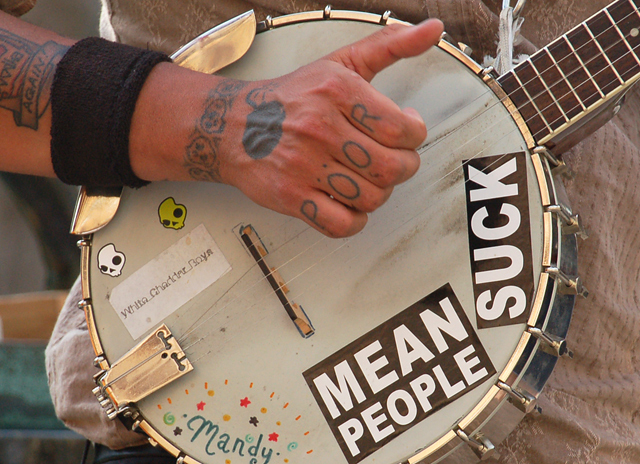How Can You Protect Another’s Vulnerability?
shielding another's potential for shame ushers blessing

Some of my deepest wounds come from the most vulnerable parts of my life being shamefully exposed – on purpose and with intention. This shaming behavior is what I like to call the exploitation of another’s vulnerability. There are varying degrees of this injustice, but because I have received it at the level of abuse, I have a tendency to get fired up when I see it happen in casual social settings.
Exploiting another’s vulnerability is like taking a megaphone to what you view as his or her imperfections. The megaphone is used to draw the attention of others to the faults that you see in the vulnerable person. People are really good at finding that vulnerable spot in others, and pushing on it for entertainment purposes or revenge. Pointing out another’s “dirt” on purpose, so that others can see, for some kind of personal gratification, is corrosive and disparaging.
But you know what? The vulnerable person at stake usually does not need you to point it out. And everyone else can usually notice and see it without you getting your megaphone out to tell everyone.
It’s never OK to exploit someone else’s vulnerability.
Do you remember Noah, the guy in the Bible with the ark?
One day he had a little too much wine to drink. His youngest son found him drunk and naked. Instead of protecting his father’s vulnerability, he left Noah there just as he was and ran to tell his brothers (total megaphone event!). When his brothers came, they carefully covered Noah with a cloak – without even looking at his nakedness. They went out of their way to minimize attention to his vulnerability.
After Noah recovered from his hangover, he cursed his youngest son, the one who turned his drunken nakedness into megaphone action, probably for entertainment purposes. However, Noah blessed the sons who protected his vulnerability.
Bringing attention to another’s vulnerability, especially in public, is wounding and condemning. Shielding another’s vulnerability is a healing salve of love and acceptance.
This is what’s in it for us when we decide to cover another’s potential for shame: blessing.
How can you protect another’s vulnerability?
Enjoy More Archerfriendliness
Working out the costs and benefits of your health care can feel like you're trying to lasso a bronco, especially when Mr. Insurance Company is involved. He goes in one direction, and then all of ...
I've been keeping the details about my new private practice off social media and the world wide web until I notified all of my current patients about the transition. I wanted to let my patients ha...
You can't separate your finances from your physical well-being. You need money to pay for your health. You need money to buy top of the line fish oil and high quality multi-vitamins. You need mo...








diane
July 12th, 2012 at 1:30 pm
love you bright eyes…..this was motivating loved it.
Reply
Sara Refsland
July 12th, 2012 at 2:23 pm
Good article Archer! I’ve been mulling over a similar topic I heard Amy and Eric talk about at the conferance. They talked about “honoring anothers brokenness”. Being someone who has a spouse in recovery and cares about honoring him, that and this article really spoke to me. If someone has brokenness in an area of their life, how do you “honor” that and help them feel protected and secure in having their brokenness. Exposing yourself and your issues are hard enough without people attacking them. I think the churches job is to learn to do both these things well.
Thanks for writing!
Reply
Dr. Archer
July 15th, 2012 at 10:07 pm
Thanks for your comment Sara. I love that phrase – honoring another’s brokenness.
Reply
Erika
July 12th, 2012 at 4:23 pm
I love this, Archer. It is a beautiful post.
Reply
Dr. Archer
July 15th, 2012 at 10:06 pm
Thanks Erika!
Reply
Cindy
December 3rd, 2012 at 7:23 pm
I loved reading this article. My?
sister is mentally challenged I always find it a challenge protecting her vulnerability.
Reply
Dr. Archer
December 4th, 2012 at 2:02 pm
Thanks for your comment. Protecting another’s vulnerability is a brave thing!
Reply